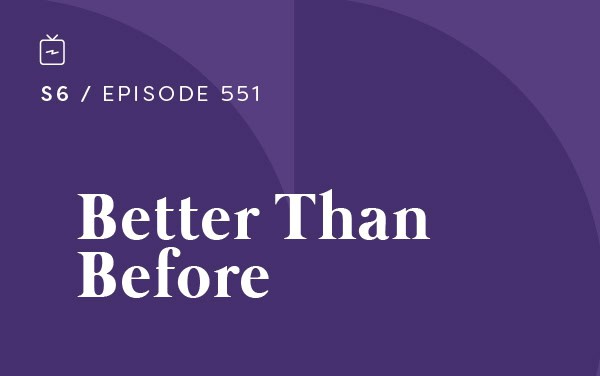
by Kris Oyen | Sep 8, 2025 | Podcast
Podcast: Play in new window | Download
Subscribe to the Recovery Elevator Podcast Apple Podcasts | | More
Today we have David. He is 51 years old, lives in Pinson, TN and took his last drink of alcohol on December 23rd, 2024.
This episode brought to you by:
Better Help – 10% off of your first month #sponsored
Exact Nature – 20% off your order with code RE20
We have a great lineup of events and courses coming to Recovery Elevator. A mindfulness course is coming up in October, then Dry January as well as a beginner ukelele course are happening in January. In February we have our first AF Songwriting course and later in the month our weeklong sober travel trip to Costa Rica.
[03:11] Thoughts from Paul:
In today’s intro Paul shares with us some statements he heard from Steven Glover (aka Steve-O from Jackass) who celebrates 17 years in recovery this year. Steve-O said that alcoholics are in a sense lucky because unlike other diseases where the best one can hope for is to return to a pre-illness state, when addicts and alcoholics treat their disease, they have the potential to become better versions of themselves.
In Paul’s upcoming book Dolce Vita, he makes the point that addiction is almost a biological mechanism to help wake us up as humans. On the other side of the addiction, if we are to heal, then we have to build a life that is more oriented towards helping others, where we are to be more authentic and where we are to admit when we are wrong in life.
One of the biggest mistakes that people make when they quit drinking is they just quit drinking. Although this is a huge step in the right direction, if this is all you do it leads to the concept of being a dry drunk. You need to address the reasons you drank to excess in the first place.
By listening to a sobriety podcast, you are doing the work. You’re investing in your recovery, and you are not a dry drunk. Your potential of becoming better than before is becoming a reality. And what wonderful timing you have as the world needs your honesty, your authenticity, your smile and your service more than ever.
[08:16] Paul introduces David:
David is 51 years old and was born and raised in West Tennessee. He has three adult children with his wife of 31 years. For work, he manages a manufacturing facility and for fun he is a lifelong musician and also enjoys genealogy and cemetery preservation.
David is the youngest of four children. He says his mother was a teetotaler and his father had a drinking problem, but it had tapered down a lot by the time David came along. David says he was raised in the country and had a small group of friends that his mother would say weren’t the best influences, and David was more of a follower than a leader and he and his friends would experiment with alcohol when he was younger.
When David was 18, he met his wife. They got married in David’s early twenties and began having kids. At this point, David didn’t drink often, and his wife didn’t drink at all. It wasn’t until their thirties that they would start having the occasional bottle of wine in the house.
In his late thirties, the drinking began ramping up. David began to have a regular music gig that was 45 minutes from home. He began going to have dinner and beers before the gig and over time started going out again after the gigs as well. He began drinking more on the weekends and that eventually crept into every day while isolating.
After some negative health reports in 2019, David began to try and address his drinking and says it was like a hamster wheel. By 2021, he knew he wanted to pursue an alcohol-free life and shared this with his wife, who has been very supportive of him.
Since his last drink in 2024, David says all of his relationships have improved, his bass playing has improved, and he started college last year and will be graduating soon. David is looking forward to continuing his personal growth, learning to meditate and travel.
Recovery Elevator
You took the elevator down, you gotta take the stairs back up.
We can do this.
RE on Instagram
Recovery Elevator YouTube
Sobriety Tracker iTunes
Café RE
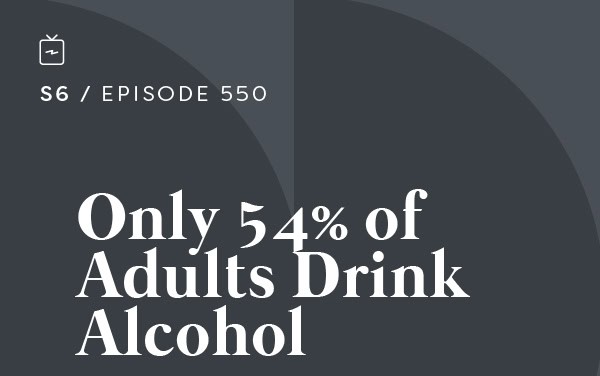
by Kris Oyen | Sep 1, 2025 | Podcast
Podcast: Play in new window | Download
Subscribe to the Recovery Elevator Podcast Apple Podcasts | | More
Today we have Odette. She’s 37 years old, lives in San Diego, CA and she took her last drink 486 days ago.
This episode brought to you by:
Better Help – 10% off of your first month #sponsored
Exact Nature – 20% off your order with code RE20
Registration is open for our next retreat in Costa Rica. That’s February 21st – 28th, 2026 in Guanacaste, a Blue Zone. We are over halfway full, but we have seven spots left.
[03:09] Thoughts from Paul:
When 17 people send Paul an article in the span of 2-3 days, he knows it means something big just came out… and this one is big because it disarms one of the biggest reasons why it’s so hard to quit drinking: everyone else is drinking. Which is no longer true. Several publication released this article and here’s the link for the CBS article.
It says – only 54% of U.S. adults say they drink alcohol, a record low.
There is a growing belief that even moderate alcohol consumption is a health risk which is 100% correct. In 2015 28% of Americans though this but now in 2025, that percentage has almost doubled to 53%.
While mostly younger Americans are driving this trend, but older Americans are getting on board as well and the alcohol industry is tanking. Paul says that he can’t help but feel that we all have had a part in this. That we, including you, the listener, have saved lives by doing our part getting the proper messaging out about alcohol, and people are listening.
So, you’re not the only one who doesn’t drink. Paul doesn’t drink, Odette doesn’t drink and 46% of Americans don’t drink either.
[07:57] Paul introduces Odette:
In addition to being interviewed on episodes 128 and 231, Odette was the podcast host from episode 277 to 378.
Odette is from Guadalajara, Mexico but has been living in San Diego, CA with her husband, two kids and a variety of pets. She works in operations for a company called Chosen Foods. Around a year ago, she began teaching breathwork as well. For fun, she and her family enjoy being outside, especially at the beach.
Odette shares that addiction runs in her family, her father, who recently hit 16 years sober, went into rehab when Odette was 18. At the time she was struggling with an eating disorder and clinical depression. She never expected alcohol to be a problem for her.
Odette moved to the US with her husband after she graduated college. She kept her eating, and depression issues a secret for about a year after they got married but ended up going into treatment for it because she knew she needed to be healthy in order to have kids.
After having their first child, Odette says that she fell into the “mommy wine culture” pretty quickly. Playdates included toys for the kids and wine for the moms. Over time she began to look forward to drinking but there was always a knowing that this wasn’t her authentic self, she says. The drinking helped her feel like she fit in.
The drinking and her eating disorder didn’t play well together. She found the lines getting blurry and she wasn’t listening to her body as well as before. Since she didn’t drink much, she wasn’t sure she really had a problem, but it was all taking a toll mentally.
During the time Odette was hosting the RE podcast, her grandmother got sick. She lives far from her family and the uncertainty of the situation and pain of not being there was too much for her. Even with all of her tools, Odette found herself relapsing. She struggled with the shame of it and felt a little lost but leaning into the community and learning how to accept herself has been important to getting her footing back.
Odette says recovery isn’t about fixing yourself, it’s about accepting all of the things that you are. Breathwork has been helpful for Odette to learn how to get back in touch with her body and be present.
The Harmony House
Odette Cressler
Recovery Elevator
You took the elevator down, you gotta take the stairs back up.
I love you guys.
RE on Instagram
Recovery Elevator YouTube
Sobriety Tracker iTunes
Café RE
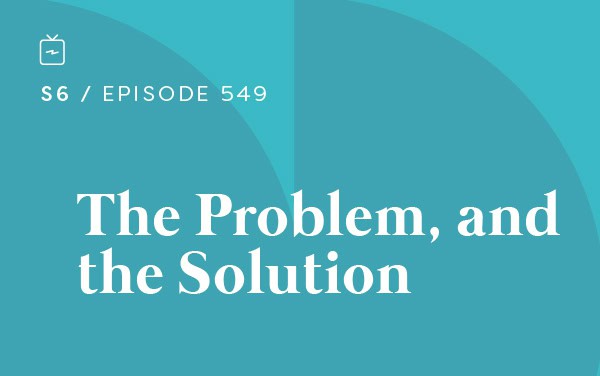
by Kris Oyen | Aug 25, 2025 | Podcast
Podcast: Play in new window | Download
Subscribe to the Recovery Elevator Podcast Apple Podcasts | | More
Today we have Justin. He is 40 years old and lives in Northern Ontario. He took his last drink on August 20th, 2023.
This episode brought to you by:
Better Help – 10% off of your first month #sponsored
Café RE – the social app for sober people
[04:03] Thoughts from Paul:
In our question for sobriety, we often ask ourselves why the drinking? Why can’t I stop? What’s the problem here?
Paul shares his experience with the 12 Steps of AA, more specifically, step 4 where you list all of your resentments. He filled an entire notebook for his fourth step and after reading this out loud to his sponsor, it became clear to him that he was at least 50% of every problem that he encountered or had been part of. The fourth step showed him the patterns, and the data was clear – he was the problem. The same is true for all of us.
It turns out, in a non-shaming way, you are the problem, and you are not the solution. This should be empowering because if you are the problem, you’re the only thing you can control. The solution is not a one and done thing. The big one here is to burn the ships and to start building community.
We used alcohol to numb the pains of living in a super challenging world, and the solution is that we have to find a better way to respond to the world and we have to come together to make this happen.
[08:39] Paul introduces Justin:
Justin is from Northern Ontario, has been married for 14 years and they have two dogs and cat. Formerly an electrician, Justin is now a part-time day trader. He enjoys hiking, yoga and meditation. Justin and his wife Danielle quit drinking together just over two years ago.
Justin had his first drink at age 15 with some friends. He didn’t see the point in drinking at first but was happy to have friends to drink with. Over time he not only enjoyed spending time with friends he also began to enjoy the drinking too.
At 18, Justin had a job with a sound and lighting company, and they would do a lot of concerts. He reflects that the amount of booze that was around and available to him for free was insane. Within the next two years he developed a habit of drinking 10 to 20 beers a day. In addition to the drinking, Justin had developed an addiction to harder drugs.
When Justin was around age 23, he quit the job and doing hard drugs but used alcohol to help him. This contributed to his intake increasing and he was still drinking daily. Because he wasn’t doing hard drugs anymore, he thought it was ok, and he was living clean. After Justin’s third DUI charge in 2015, he begins to realize that he might have a problem. He quit for five days and decided he didn’t have a problem, so he went back to drinking.
Living in a small town where many people drank more than them, Justin and Danielle had the illusion that they “weren’t that bad”. They enjoyed drinking together most of the time, but when they began fighting more often, they acknowledged that there might be an issue. They began trying moderation techniques, but eventually knew they just needed to stop altogether.
They drank one last time after losing their horse and Justin says he had the worst hangover the next day. They both had already been listening to the RE podcast and had joined Café RE. Justin is grateful to being doing this with his partner and they find strength in one another.
Justin was just diagnosed with a brain tumor, so they are planning a big move back to Southern Ontario to be closer to family. Being sober for these life changes is a gift, Justin says. When asked what his mantra has been for the last few months Justin says “go with the flow, keep on truckin’, be like water. You can’t fight life. Life is just going to push you as it pushes you and generally, you’ll get what you need”.
Justin’s parting piece of guidance: the only way out is through. You gotta go through it to move out of it.
Recovery Elevator
We took the elevator down. We gotta take the stairs back up.
I love you guys.
RE on Instagram
Recovery Elevator YouTube
Sobriety Tracker iTunes
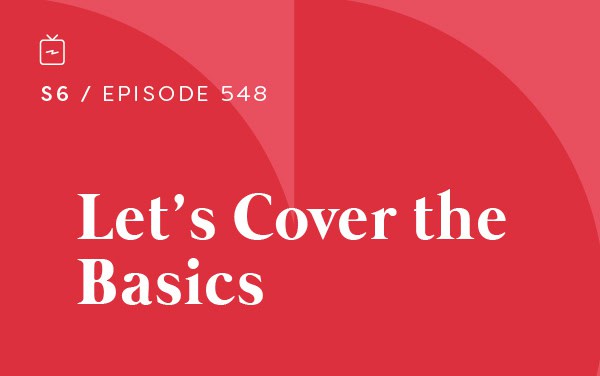
by Kris Oyen | Aug 18, 2025 | Podcast
Podcast: Play in new window | Download
Subscribe to the Recovery Elevator Podcast Apple Podcasts | | More
Today we have Amy. She is 41 years old and lives in Raleigh, NC. She took her last drink on December 12th, 2023.
This episode brought to you by:
Better Help – 10% off of your first month #sponsored
Exact Nature – use code RE20 to save 20% off of your order
October 2026 we have a new retreat we have yet to do. This is an in-person alcohol-free ukulele retreat taking place in Guanacaste, Costa Rica. There will be ukulele instruction in the mornings and Spanish immersion courses in the afternoon.
[02:01] Thoughts from Paul:
Addiction is disconnecting with the self and your fellow humans. More sobriety is connection with the self, your fellow humans and more. “I” equals illness, “we” equals wellness.
Quitting drinking is a perfect circle. Your drinking crisis is an opportunity for someone to help. Phrased with 12 step verbiage, your first step is someone else’s 12th step. And when you find your footing, you can then assist someone else in their drinking crisis.
When the soul is hurting, the healing only happens when you’re not alone. And speaking of being alone, listeners, you are not alone. You are not the only one who struggles with alcohol. You, along with the other listeners, are seeking not only sobriety but seeking a deeper connection with all. Seeking answers that the bottle can’t deliver. You are in the right place.
[07:37] Paul introduces Amy:
Amy is 41 years old and lives in Raleigh, NC with her husband and a three-year-old son. Amy says she is a theater nerd and does improv comedy for fun.
Amy grew up in the southwest side of Chicago where she says her father was an alcoholic. She has memories of being a child at AA and Al-Anon meetings with her parents as well as memories of her father taking her to bars when they would tell her mother they were somewhere else.
Amy had her first drink when she was 15 while going to a concert with older teens. There was a bottle passed around the group and they all got drunk. Later that night she was found in the field of the concert venue by paramedics and taken to the hospital to have her stomach pumped.
She began to live a double life throughout high school and college. Amy saw that if she got good grades and joined all of the clubs, she would get praise and recognition. On the flip side she would drink very hard, and it wasn’t uncommon for her to get alcohol poisoning. Only after going to grad school in New York was Amy able to calm down a bit.
After COVID, Amy and her husband were doing IVF. Amy says she didn’t drink much at this point, but after having the baby, she suffered from postpartum anxiety which led her to daily drinking as a tool to cope with it. Over time she would begin to try moderation but limiting herself to two drinks was difficult and led to binges.
Amy’s last bender was at a holiday work party. The next day she found herself hungover and asked herself how her drinking was any better than her father’s was when she was younger. She knew that she may be heading down a dangerous path, so Amy decided to call the local AA helpline.
Amy began going to AA meetings and found a sponsor. She shares that her mother was a great support because of her experience with Al-Anon and she understood what Amy was going through.
One of the best things for Amy was burning the ships and gaining accountability. Even after 18 months, Amy admits there is white knuckling at times. She realizes that after 25 years of drinking, it doesn’t all heal within 18 months, but she is grateful to be where she is and says that since getting sober, she hasn’t missed a day of her son’s life.
Amy’s parting piece of guidance: everything that she was looking for while getting drunk can be found in recovery and she found it in Café RE and AA. Take what works and leave the rest.
Recovery Elevator
It all starts from the inside out.
I love you guys.
Café RE – the social app for sober people
RE on Instagram
Recovery Elevator YouTube
Sobriety Tracker iTunes
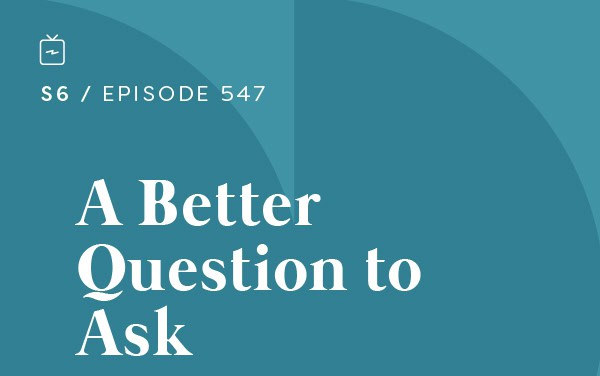
by Kris Oyen | Aug 11, 2025 | Podcast
Podcast: Play in new window | Download
Subscribe to the Recovery Elevator Podcast Apple Podcasts | | More
Today we have Brian. He is 40 years old from Spring Hill, MA and he took his last drink of alcohol on July 16th, 2024.
This episode brought to you by:
Better Help – 10% off of your first month #sponsored
Exact Nature – 20% off your order with code RE20
Shout out to these alcohol-free brands for sponsoring our seventh Bozeman Retreat:
Athletic Brewing
Sober Link – save 50% on a device
Rise Up Coffee
Better Rhodes – use code RECOV_EL_15 at checkout for 15% off
Odyssey Elixirs
[03:25] Thoughts from Paul:
Paul shares with us Bill W., the founder of AA once shared letters back and forth with Swiss psychologist Carl Yung looking for feedback on the program he was creating. Perhaps the most important letter from Yung to Bill W. was a letter suggesting a spiritual solution was needed to overcome addiction. He was a firm believer that addiction has nothing to do with weakness but is a misdirected cry for wholeness.
Another viewpoint that Carl Yung gave us is to not ask why you want to quit drinking but what pain you are trying to silence? Or what role is alcohol playing?
When we start asking the right questions and stop fighting the addiction, the healing process begins. If you keep doing your own inner work, the massive ship called your addiction will change course. It takes time to redirect the energy called an addiction, but when we start asking the right questions, it’s going to happen. It’s just a matter of time.
[07:36] Paul introduces Brian:
Brian is 40 years old and lives in Springfield, MA. He has been married 13 years, and they have two children. For fun he enjoys weight training, cooking, and spending time with his kids.
Brian is the oldest of four kids and his parents divorced when he was young. He shares that he internalized a lot of stuff growing up and carried a lot of emotion. Brian wasn’t the kid to act out, but he recalls the first time he drank was when his mother was out of town and he ended up getting very sick. He says it taught him a lesson, and he didn’t party much in high school.
In college, Brian says, alcohol acted like that warm hug that people talk about. It gave him a lot of confidence socially and he became friends with people older than him. Once they started graduating, he lost a lot of the friends he drank with, so he found himself drinking alone occasionally which he didn’t think there was anything wrong with.
After graduation, the job market was tough which had Brian stressed out and he began using alcohol as a coping mechanism. He was drinking daily and ended up getting pancreatitis after a while, which was a bit of a wake up call for him. The drinking didn’t end but Brian began to try and moderate.
Over the years Brian was able to quit for periods of time but would return to drinking to cope with traumatic events. He was working on sobriety, watching YouTube videos, trying naltrexone and listening to podcasts. He was making progress, but COVID came and knocked him down again.
Brian did not want to fall onto the same path that his father had with his alcoholism. Brian had a rock bottom moment when his behavior on a vacation had him showing a negative side of himself to his in-laws.
On the weekend of his wife’s birthday, Brian had a few days sober, and his internal voice was trying to convince him to drink. He turned on the RE podcast while he was mowing the lawn and soon after had made the decision that he was going to quit drinking forever. He then burned the ships and told his wife about his decision.
Since quitting drinking Brian’s health has improved, he has lost 35 pounds and has found a community in Café RE. He is planning on finding more connection locally to him through AA soon.
Brian’s parting piece of guidance: listen to your heart rather than your brain. Follow your instincts.
Recovery Elevator
You took the elevator down, you gotta take the stairs back up.
We can do this.
RE on Instagram
Recovery Elevator YouTube
Sobriety Tracker iTunes
Café RE







